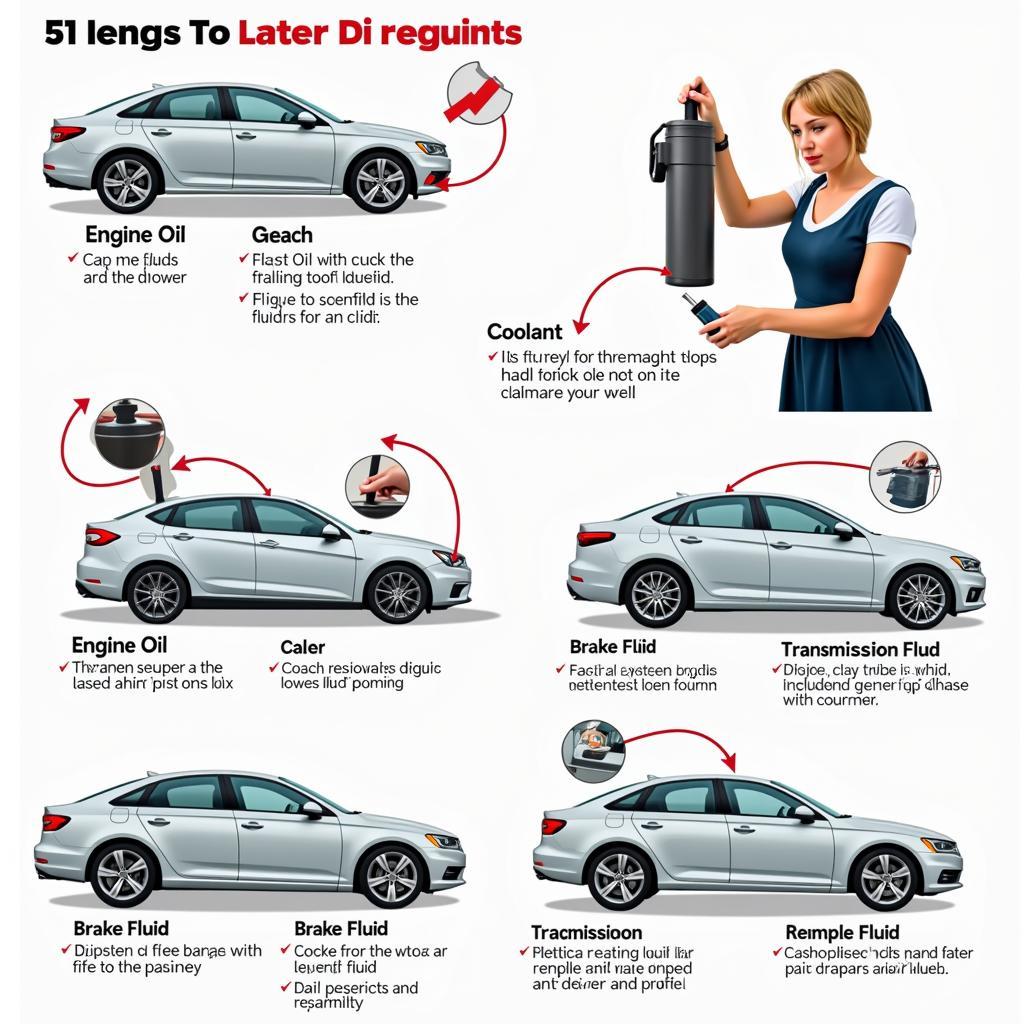A failing car master cylinder can lead to a terrifying loss of braking power, making it a critical component to understand and maintain. This guide dives deep into Car Master Cylinder Problems, providing you with the knowledge to diagnose, troubleshoot, and fix these issues, whether you’re a car owner, a mechanic, or an automotive enthusiast.
Understanding the Car Master Cylinder
The master cylinder is the heart of your car’s braking system. When you press the brake pedal, it activates the master cylinder, which pressurizes brake fluid. This pressure is then transmitted through brake lines to the wheel cylinders or calipers, forcing them to clamp down on the brake rotors or drums, thus stopping the vehicle. Any problems with the master cylinder can compromise this process, resulting in reduced braking performance or even complete brake failure. Had a car for a week and already having car problems? Check out this resource: had car a week car problems.
Common Car Master Cylinder Problems
Several issues can plague a master cylinder. These include:
- Low Brake Fluid: A leak in the system or worn-out seals can cause low brake fluid, leading to a soft or spongy brake pedal.
- Internal Leaks: Worn seals within the master cylinder can allow brake fluid to bypass the pistons, resulting in reduced pressure and a sinking brake pedal.
- External Leaks: Leaks around the master cylinder itself can indicate a failing seal or a cracked housing. This often manifests as a visible puddle of brake fluid under the vehicle.
- Air in the Brake Lines: Air bubbles in the brake lines compress more easily than brake fluid, causing a spongy brake pedal feel and reduced braking effectiveness.
- Corroded Master Cylinder: Over time, corrosion can build up inside the master cylinder, hindering its operation and potentially leading to leaks.
Diagnosing Car Master Cylinder Problems
How can you tell if your master cylinder is acting up? Here are some key indicators:
- Spongy Brake Pedal: This is often the first sign of a problem. A spongy pedal feels soft and requires more travel than usual.
- Sinking Brake Pedal: If the brake pedal slowly sinks to the floor while holding constant pressure, it could indicate an internal leak in the master cylinder.
- Low Brake Fluid Level: Check the brake fluid reservoir regularly. A consistently low level, even after topping it off, points to a leak somewhere in the system, possibly in the master cylinder.
- Brake Warning Light: If your brake warning light illuminates, it’s crucial to have your braking system inspected immediately. This could indicate a serious problem, including a faulty master cylinder. Experiencing a multitude of car problems lately? Check out current car problem trends.
Repairing or Replacing a Car Master Cylinder
Depending on the severity of the problem, you may be able to repair the master cylinder by replacing the seals. However, in many cases, replacing the entire unit is the most practical and reliable solution.
- Gather Necessary Tools: You’ll need wrenches, a brake bleeder kit, new brake fluid, and possibly a new master cylinder.
- Disconnect Brake Lines: Carefully disconnect the brake lines from the master cylinder, taking precautions to avoid spilling brake fluid.
- Remove the Master Cylinder: Unbolt the master cylinder from the brake booster and remove it from the vehicle.
- Install the New or Rebuilt Master Cylinder: Install the new or rebuilt master cylinder, ensuring all connections are tight.
- Bleed the Brakes: This crucial step removes any air from the brake lines, restoring proper braking function. Need help with car title issues? Here’s a helpful resource: attorney for car title problems.
Conclusion
Car master cylinder problems can range from minor inconveniences to serious safety hazards. Understanding the symptoms and knowing how to diagnose and address these issues is vital for safe and reliable driving. Regular maintenance and prompt attention to any warning signs can help prevent costly repairs and ensure your braking system is always in top condition. Need assistance with car insurance for problems? Check this out: insurance for.car problems. For further assistance or expert advice, don’t hesitate to contact AutoTipPro at +1 (641) 206-8880 or visit our office at 500 N St Mary’s St, San Antonio, TX 78205, United States.
FAQs
- What does a bad master cylinder sound like? A bad master cylinder doesn’t typically make a sound. The symptoms are usually felt in the brake pedal.
- Can I drive with a bad master cylinder? Driving with a bad master cylinder is extremely dangerous and should be avoided.
- How long does a master cylinder last? A master cylinder can last for many years, but its lifespan depends on factors like driving conditions and maintenance.
- How much does it cost to replace a car master cylinder? The cost varies depending on the make and model of your vehicle, but it typically ranges from a few hundred to a thousand dollars.
- How do I know if I have air in my brake lines? A spongy or soft brake pedal is the primary indicator of air in the brake lines. Having trouble with word problems related to cars? This might help: word problem a car is going.
- Can I fix a leaking master cylinder myself? While minor repairs are possible, replacing the master cylinder is often the more practical solution.
- How often should I check my brake fluid level? It’s a good idea to check your brake fluid level at least once a month.





Leave a Reply